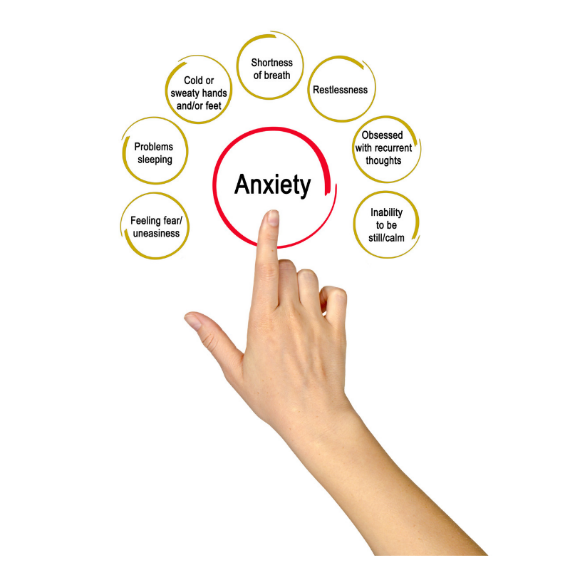See our blog archive for a complete list of our articles in chronological order.
Blog

Beautiful Just the Way You Are
Anyone who has been an adolescent girl knows the kind of crazy and negative thought patterns that can circulate through the brain when a girl thinks of her own body. I remember spending hours in

Cooking Lessons
My mom was not a feminist. You could say she was a 1950s Donna Reed sort of mom, not the kind who had a job outside the home or marched in feminist rallies when I was growing up in the 60s.
She was a great cook, and because she made such fabulous, fresh meals, on time, every day, I never felt the need to learn how to cook myself. If I felt the urge to create something, it was more satisfying to sew a dress or draw a picture. A member of a 4-H club, I learned to bake brownies and cookies, and once, in high school, I spent all day preparing a ham dinner with all the trimmings—applesauce, string beans and dinner rolls—from scratch. For all my trouble, within 30 minutes it was gone, with only a few “gee thanks” left trailing in the air. To my teenage mind, it seemed like a massive waste of time.

Advocating for Women’s Heart Health
Thirty-eight % of all deaths in women are related to coronary heart disease (CHD), more than the next seven causes of death combined. For almost three decades women have outperformed men in the raw numbers linked to cardiac mortality. While both women and their doctors once associated CHD with older males, heart health is now widely recognized as a woman’s issue. The Transcendental Meditation program can be a significant part of a woman’s solution.

Living Sustainably from the Inside Out
What does it mean to live sustainably? Is it recycling diligently? Driving an electric car? Growing your own organic veggies?
According to the dictionary, sustainable means “able to be maintained at a certain rate or level.” Or “conserving an ecological balance by avoiding depletion of natural resources.” Other people might define it as the energy going out never exceeding the energy going in.

Meditation or Medication? Today’s Plague of Pill-popping
An estimated 80 million Americans suffer from chronic pain, according to the American Chronic Pain Association, but women experience pain more often and with greater intensity. Research also shows men and women respond differently to pain medications, and in fact use separate mechanisms in the brain to achieve pain relief.

Many Ways to Mother
I guess I have to come out with something. Even though I once taught children in grades 2-4 and trained elementary school teachers in the language arts, wrote articles for a children’s column for Plain magazine and am a member of the Society of Children’s Book Writers and Illustrators, have co-authored two books on children’s health, written articles on parenting and am the loving aunt of two and Godmother of three, I myself have never given birth to a child.
Don’t get me wrong. I really do love kids, which is why so much of my career and my social life is wrapped around them. But when it came to having our own, it seemed like my husband and I always wanted to wait until sometime in the future. There were real obstacles that I don’t want to go into here, but basically, I admit it—we didn’t want kids enough.

Liberty Enlightening the World: The Definitive American Icon
On July 4th 2013, the Statue of Liberty reopened after Superstorm Sandy had flooded Liberty Island in the middle of New York Harbor, making access to the public impossible.
The most iconic American symbol of enlightenment, a gift from France to the USA in 1886, the robed female figure represents Libertas, the Roman goddess of freedom. The French name for the colossal neoclassical sculpture is La Liberté éclairant le monde which, when translated, is Liberty enlightening the world.

Yearning for More: The Quest for Enlightenment, Part Two
The Universality of TM and Transcendental Consciousness—the Basis of Higher States of Consciousness
The range of human life is not, as is generally thought, restricted to our various ways of living, sleeping, waking, playing, talking or behaving; these are only the gross levels of human values. The real, substantial value of human life is the bliss-consciousness that raises one to the high estate of eternal freedom while he is engaged in the day-to-day world of transitory values. —Maharishi
Our deeply felt “yearning for more in life” has its roots in the fact that our innate human capacity is so much more vast than our current experience. As an anxious, depressed teenager, when I first heard about the possibility of enlightenment, I was relieved, encouraged, inspired, and utterly fascinated. Since that time, the process of discovery has been extraordinarily rewarding. In this series of blogs on the quest for enlightenment, I will share my discovery of Maharishi’s teachings on higher states of consciousness.

On Lots of Candles, Plenty of Cake and What We Missed between Birthdays
Anna Quindlen inspires, provokes with kindness, and makes her reader laugh and—more importantly—think. She is an expert on being self-aware, shedding light on subtle tendencies that women “of a certain age” share, and on giving us the comfort that sharing personal truths brings. She precisely and humorously captures and portrays every nuanced experience of mothers, wives, and women treated as second class employees on our emotional map between self-incrimination and self-congratulation.

Anxiety as a Way of Life?
Until recently I hadn’t known that there was more than one kind of anxiety, but there is. It turns out that there is one measure of anxiety named state anxiety, which is related to specific